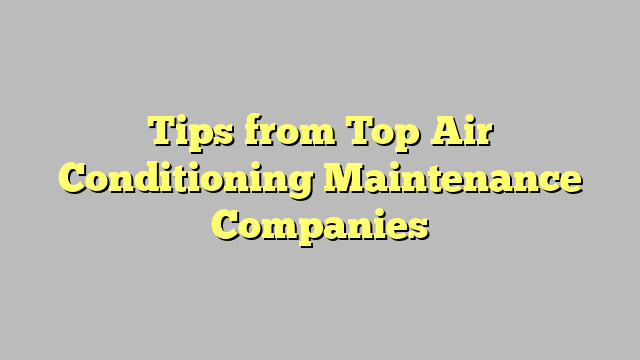Air conditioning maintenance refers to the regular upkeep and servicing of an air conditioning unit to ensure its optimal performance and longevity. It involves a series of tasks, such as cleaning, inspecting, and repairing various components of the unit. Regular maintenance is crucial for the efficient operation of an AC system and can help prevent breakdowns and costly repairs.
Importance of Regular AC Maintenance
Regular AC maintenance offers several benefits that can improve the overall performance and lifespan of the unit. One of the key advantages is improved efficiency. When an AC unit is well-maintained, it operates more efficiently, which means it uses less energy to cool the space. This can result in lower energy bills and significant cost savings over time.
Another benefit of regular maintenance is a longer lifespan for the AC unit. By keeping all components clean and in good working condition, you can extend the life of your system. Neglecting maintenance can lead to premature wear and tear on parts, which can result in breakdowns and the need for expensive repairs or even replacement.
Tips for Maintaining Your AC Unit
To maintain your AC unit effectively, there are several practical tips you can follow. First, it’s important to change your air filters regularly. Clogged or dirty filters restrict airflow, making your AC work harder and less efficiently. It’s recommended to change filters every 1-3 months, depending on usage and the type of filter.
Cleaning the coils is another essential maintenance task. Over time, dirt and debris can accumulate on the evaporator and condenser coils, reducing their ability to transfer heat effectively. Cleaning these coils regularly can improve efficiency and prevent potential issues.
Checking refrigerant levels is also crucial for maintaining your AC unit. Low refrigerant levels can indicate a leak or other problem that needs attention. If you notice a decrease in cooling performance or ice buildup on the coils, it’s important to have a professional inspect and recharge the refrigerant.
It’s important to follow the manufacturer’s instructions and safety precautions when performing maintenance tasks. If you’re unsure or uncomfortable with any aspect of AC maintenance, it’s best to hire a professional.
Understanding Your AC Unit’s Lifespan
The typical lifespan of an AC unit can vary depending on several factors, including usage, maintenance, and environmental conditions. On average, a well-maintained AC unit can last between 10-15 years. However, some units may last longer with proper care, while others may need replacement sooner.
Regular maintenance plays a significant role in extending the lifespan of an AC unit. By keeping all components clean and in good working condition, you can prevent premature wear and tear and ensure optimal performance.
Environmental conditions can also affect the lifespan of an AC unit. For example, units located in areas with high humidity or extreme temperatures may experience more strain and wear on components, leading to a shorter lifespan.
Knowing when to replace an old AC unit is important to avoid unexpected breakdowns and costly repairs. If your unit is nearing the end of its expected lifespan or if you’re experiencing frequent issues and repairs, it may be time to consider replacing it with a newer, more efficient model.
Common AC Problems and Solutions
There are several common AC problems that homeowners may encounter. One common issue is refrigerant leaks. Low refrigerant levels can cause your AC to blow warm air or not cool effectively. If you suspect a refrigerant leak, it’s important to have a professional inspect and repair the unit.
Frozen coils are another common problem that can occur due to restricted airflow or low refrigerant levels. If you notice ice buildup on your coils, it’s important to turn off the unit and allow it to thaw before addressing the underlying issue.
Faulty thermostats can also cause problems with your AC unit. If your thermostat is not accurately reading the temperature or is not functioning properly, it can lead to inconsistent cooling or other issues. In some cases, recalibrating or replacing the thermostat may be necessary.
For each of these common problems, there are DIY fixes that homeowners can try. However, it’s important to know your limits and when to call a professional. Some AC issues require specialized knowledge and equipment to diagnose and repair properly.
Signs Your AC Unit Needs Maintenance
There are several signs that indicate your AC unit may need maintenance. One common sign is strange noises coming from the unit. Unusual sounds, such as grinding, squealing, or banging, can indicate a problem with the motor or other components.
Weak airflow is another sign that your AC unit needs attention. If you notice a decrease in airflow or if some rooms are not cooling as effectively as others, it may be due to a clogged filter, dirty coils, or other issues that require maintenance.
Unpleasant odors coming from your AC unit can also indicate a need for maintenance. Foul smells can be caused by mold or bacteria growth in the system, which can affect indoor air quality and potentially cause health issues.
It’s important to address these signs promptly to prevent further damage to your AC unit. Ignoring these signs can lead to more significant issues and potentially costly repairs.
DIY vs. Professional AC Maintenance
When it comes to AC maintenance, homeowners may wonder whether they should tackle tasks themselves or hire a professional. There are pros and cons to both approaches.
DIY maintenance can save money and give homeowners a sense of accomplishment. Tasks such as changing air filters and cleaning coils can be done by most homeowners with basic tools and knowledge. However, it’s important to know your limits and when to call a professional.
Some AC maintenance tasks require specialized knowledge and equipment that homeowners may not have. Additionally, attempting complex repairs without proper training can lead to further damage and potentially void warranties. In these cases, it’s best to hire a professional who has the expertise and tools to handle the job.
Choosing the Right AC Maintenance Company
If you decide to hire a professional for AC maintenance, it’s important to choose a reputable and reliable company. Here are some tips for selecting the right AC maintenance company:
1. Check credentials: Ensure that the company is licensed and insured. This provides protection for both you and the company in case of any accidents or damages.
2. Read reviews: Look for reviews and testimonials from previous customers. This can give you an idea of the company’s reputation and the quality of their work.
3. Compare prices: Get quotes from multiple companies and compare prices. However, keep in mind that the cheapest option may not always be the best. Consider the company’s experience, reputation, and customer service when making your decision.
Benefits of Regular AC Maintenance
Regular AC maintenance offers several benefits beyond improved efficiency and a longer lifespan. One significant advantage is improved indoor air quality. Regular maintenance helps remove dirt, dust, allergens, and other pollutants from the system, resulting in cleaner air circulating throughout your home.
Another benefit is increased home value. A well-maintained AC unit is an attractive feature for potential buyers and can increase the value of your home. It also gives buyers peace of mind knowing that they won’t have to worry about immediate repairs or replacements.
Maximizing Your AC Unit’s Efficiency
In addition to regular maintenance, there are several other steps homeowners can take to maximize their AC unit’s efficiency:
1. Use a programmable thermostat: A programmable thermostat allows you to set different temperature settings throughout the day, ensuring that your AC is only running when needed.
2. Seal air leaks: Inspect your home for any air leaks around windows, doors, and ductwork. Sealing these leaks can prevent cool air from escaping and hot air from entering, improving efficiency.
3. Shade the unit: If possible, provide shade for your outdoor AC unit. Direct sunlight can cause the unit to work harder and less efficiently. Planting trees or installing a shade structure can help keep the unit cool.
Maintaining Your AC for Longevity
Regular AC maintenance is essential for the optimal performance and longevity of your unit. By following the tips and guidelines outlined in this article, you can ensure that your AC operates efficiently, saves energy, and lasts for years to come. Don’t wait until your AC breaks down or starts showing signs of trouble – take action now and schedule regular maintenance to keep your home cool and comfortable.




